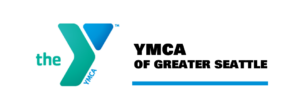Grantee: YMCA of Greater Seattle
Timeframe: July 2018 – June 2021 | Total Amount: $224,999.41
Year 1: July 2018 – June 2019. Amount: $75,000
Year 2: July 2019 – June 2020. Amount: $75,000
Year 3: July 2020 – June 2021. Amount: $74,999.41
Target disparities in obesity/diabetes in communities of color and newcomer populations in south Seattle/King County through creating a community-led infrastructure that renders YMCA evidence-based programs more accessible, meaningful, and effective.
YMCA will shift focus to make better use of limited resources and deepen the impact they strive to make through this project. This will include narrowing their focus and consolidating staff hours and resources into one community. Given that the highest level of engagement over the last two years has been in the Ethiopian community, they will increase the amount of time and programming brought to this community to support diabetes/obesity prevention. YMCA believes this approach will address the barriers faced over the last funding cycles in trying to reach multiple communities at once with very low staff hours available to support the work needing to be done in each one.
Regarding the populations served in the African-American churches, Living Well Kent, and at Mercy Housing Appian Way and in the Auburn School District, the YMCA does not plan to just “walk away” from these communities. Regarding the recent Lose to Win cohort that started last month at Holgate St Church of Christ, facilitation of that program will move under the Meredith Mathews Branch. Continued engagement with the community after that cohort ends will be determined by branch capacity.
Regarding the partnership with Living Well Kent, YMCA already lost the Liaison serving the Somali population there to another job opportunity. Rahel took over the fitness classes engaging this population after that Liaison left. In the meantime they have already begun the process of moving that partnership under the new Kent YMCA branch so that it can live in that branch rather than rely long-term on grant funding. In Appian Way, they had also recently lost the Latina Liaison that was working with the Food Lifeline mobile food pantry at this site to bring nutrition promotion to Spanish-speaking families.
Lose to Win: The Lose to Win program consolidates the main pillars of the Diabetes Prevention Program, as it was developed by the CDC, with the YMCA’s successful track record of group relationship building to support individuals in making sustained behavior change. Since they do not license this program through the CDC they have more flexibility in tailoring the program in small ways to be more relevant in the Amharic language and Ethiopian cultural context. They have served two cohorts from the Ethiopian Community Center in this program so far and have established a positive reputation for the program. Therefore the plan is to leverage this program in conjunction with physical activity and other health-related services to expand the number of people receiving direct support around health behavior change in year 3. The goal is to serve at least 50 people with Lose to Win.
Physical Activity: YMCA learned immediately upon engaging the Ethiopian Community Center that bringing physical activity to the community was critical to any efforts to change health outcomes, because it was clear that people (especially older adults) were not utilizing any form of regular exercise or opportunity to be physically active. They therefore brought a fitness instructor in to provide weekly Zumba classes that have been well and consistently attended. They increased the number of classes to 2 per week in year 2 after realizing that the classes were typically the only physical activity people engaged in each week, meaning they were very unlikely going to reach the CDC-recommended 150 minutes of physical activity per week – which our Lose to Win program supports. Fitness programming also provides an opportunity to continue engaging persons that have completed the Lose to Win program and still need active support in maintaining health behavior changes – they can continue tracking their weight and blood pressure and support ongoing activity through engaging individuals in the Zumba classes without an “end” date. Our goal is to serve 100 distinct individuals with physical activity programming in Year 3.
Community Health Events: these events will be less necessary in year 3 for the purposes of establishing new relationships, but still useful in bringing partner agencies and resources to the community. They will work with the Ethiopian Community Center around its annual health fair event to ensure that agencies representing health care coverage and basic preventative care are available, given that coverage and relationships with primary care represent ongoing barriers to disease prevention in this community.
COVID-19 Addendum:
Due to uncertainties surrounding the COVID-19 pandemic and the pace at which YMCA facilities and community group programming will be realistically allowed to be reinstated, we will assume that for the first 2-3 months of funding year 3 that our efforts will need to focus more on virtual community engagement and health activation rather than direct program delivery. Based on the population’s access to technology and resources for virtual engagement this may include one-to-one or group phone calls, video classes, etc. Our original plan will resume as operations and social engagement are allowed to return to normal per state policy and community comfort levels.
About Our Grantee
YMCA of Greater Seattle
Building a community where all people, especially the young, are encouraged to develop their fullest potential in spirit, mind, and body.
